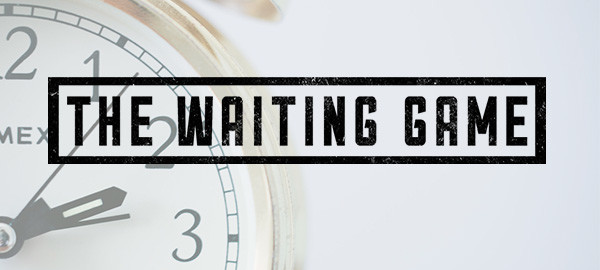Last week I shared that our application for special needs foster care was approved but that we’d have to wait a few months until we attended a two day training in the late spring before we’d be allowed to bring a baby home. So I let you know that our fostering will likely be on hold for a number of months.
At the end of the same day I wrote my post, I got a call from the placement social worker. She told me there is a baby who matches our profile and she asked us to come in right away the next morning to discuss it! I asked for some details but she refused to tell me anything – she said she can only tell me in the office as part of an official meeting.
Dh and I got there, read through the file and agreed we would theoretically be willing to bring the baby into our family. The next step is to arrange for us to meet the biological parents and see if we are all compatible. (This case is almost identical to the situation with Baby M except that this time everything is going through legal channels; my concern is the same now as it was then – that our family won’t be seen as a match by the biological parents since we aren’t chassidic.) Since the baby is almost 5 weeks old, is still in the hospital but has been medically approved to be released, we were told his placement is a priority.
After five days, we’re still waiting to hear about if there will be a meeting set up with the baby’s parents. (The parents were given our names by their social worker so they can ‘look into us’.) Dh will be starting a new job in the beginning of February and at the meeting I told the social worker that once he begins, it will be a while until we will have the flexibility to come in for meetings and appointments.
(Each time there is a baby available that you might be a match for, you have to go in for a meeting to read the file. And then another meeting on another day to meet the parents. Then another meeting or two on yet another day to meet the baby and doctors. This is in addition to all the meetings we had with the social worker during the application process.)
There are two days left until the end of the month! Will they be in touch with us before then? Is it possible for things to move that fast? I really can’t even begin to guess what direction this will go in. I know how I would like this to work out, but I also know that G-d is better than I am at working things out perfectly. 🙂
The day after we were called in I was feeling quite edgy because of the uncertainty, waiting to hear that a meeting was scheduled. I just wanted some definite detail to hold onto instead of all this misty nothingness. I hardly slept that night and when I woke up it was with a terrible headache that stayed with me for hours.
Somehow I was able to recenter myself and just say, okay, it will be what it will be. Maybe it will happen, maybe it won’t. Maybe it will happen at the very last moment and maybe it will be a few months from now with a different baby. Maybe it will never happen. It’s a good thing that I was able to do that because that was a few days ago and my anxiety level would have been sky high by now if I hadn’t!
On yet another related note, this evening I received a forward from a blog reader about a baby with DS whose family is seeking a foster family for him. Even though we’re supposed to be on the brink of meeting with these other parents, I responded to the email because I believe if something comes your way, then G-d sent it to you for some reason. It might not be the reason that I think or hope it comes to me, but there’s always some reason!
So here I am, living in the moment but at the same time wanting to keep you in the loop. 🙂













